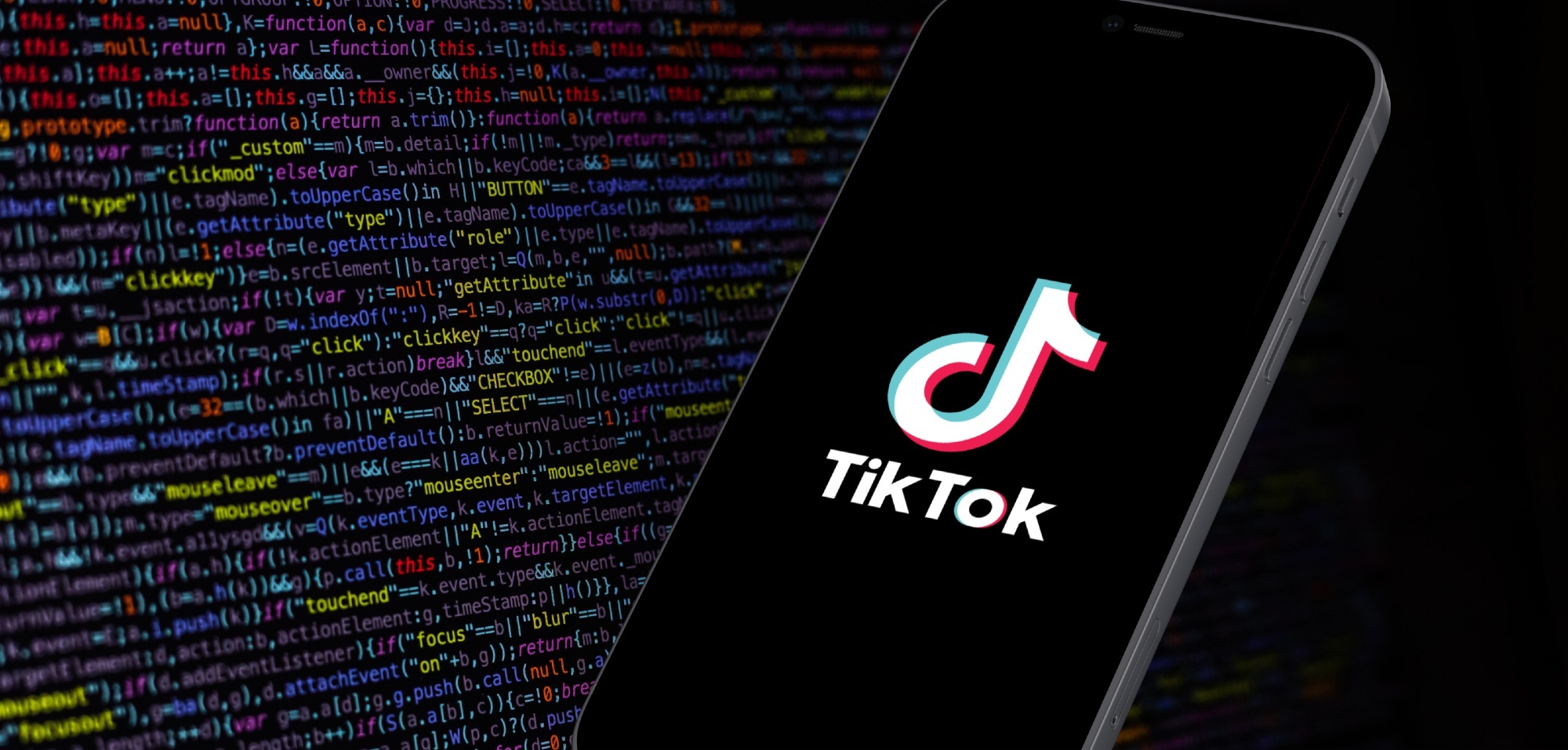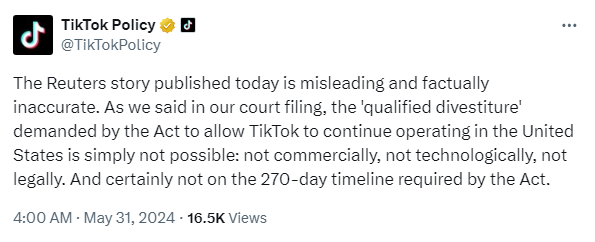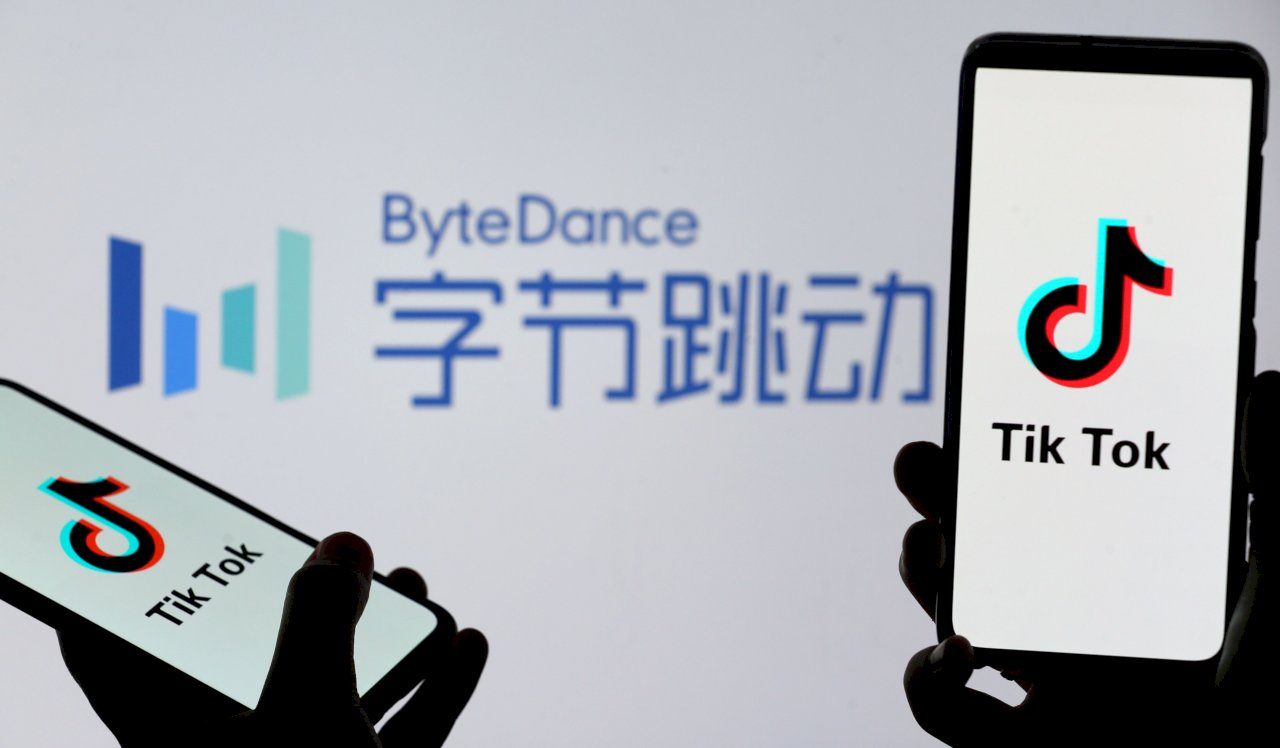TikTok Says No To "U.S. Exclusive"
It is reported that TikTok is developing code for U.S. market exclusively, and the company later denied reports that it would sell its U.S. assets.
According to foreign media reports, TikTok, which is currently facing with regulatory dilemma in the United States, intends to develop a "exclusive core code" for the approximately 170 million U.S. users.
As soon as the news broke, the market buzzed with speculation that it might indicate ByteDance's desire to separate TikTok from its own business, turning it into an independent entity from its parent company.
The release also revealed that "TikTok proposed transferring control to the U.S. government in 2022", but ByteDance immediately issued a statement denying this claim.

Regarding whether TikTok will forgo its control, ByteDance has been entangled with the United States for a long time.
On April 24 this year, U.S. President Joe Biden signed a bill requiring ByteDance to sell TikTok by January 19, 2025, or else it would be banned from operating in the country.
TikTok, on the other hand, believes that the bill is anti-constitutional and plans to file a lawsuit to reclaim its reasonable authority through legal procedures. On May 14, many of TikTok's founders took the lawsuit to court, and a U.S. court will hear the case in this September.
In the latest report, hundreds of Chinese and American engineers from ByteDance and TikTok have been ordered over the past few months to begin separating millions of lines of code, filtering the code, and matching relevant videos according to user preferences.
It is reported that the task aims to create a codebase independent of "Douyin" (TikTok Chinese version) and eliminate all information related to Chinese users. According to rough estimates, it may take more than a year to complete the whole separation.

TikTok has refuted these reports, stating that they are "misleading and inconsistent with the facts", but specifying no inaccuracy, only noting that—whether commercially, technically, or legally—it is impossible for TikTok to complete a "qualified separation" within the 270 days required by the U.S. bill to continue operating in the United States.
Despite this, the media still adhere to their position, saying that even though ByteDance has no current plans to divest TikTok, the code separation task lays the groundwork for selling assets to the United States, and make it more likely to be accepted by U.S. lawmakers.
TikTok spokesman Michael Hughes said: "The company has always been committed to ensuring the authentic experience TikTok provides to users, but this does not mean selling related assets, the code-separating does not exist at all."

Previously, TikTok attempted to isolate U.S. user data through "Project Texas", but failed to satisfy U.S. regulators and lawmakers. Now, the company is stepping up efforts to prove the independence of its U.S. operations, even taking initiatives such as open-sourcing part of its code to prove its transparency. Company executives have also communicated multiple times about the code separation project in group meetings, internal documents, and on Lark.
However, this code separation might significantly impair the performance of TikTok's U.S. version in the future. Without the engineering support of ByteDance's Beijing team, TikTok will be unable to utilize its previous recommendation engine, which might greatly reduce its market performance and user engagement.
·Original
Disclaimer: The views in this article are from the original Creator and do not represent the views or position of Hawk Insight. The content of the article is for reference, communication and learning only, and does not constitute investment advice. If it involves copyright issues, please contact us for deletion.